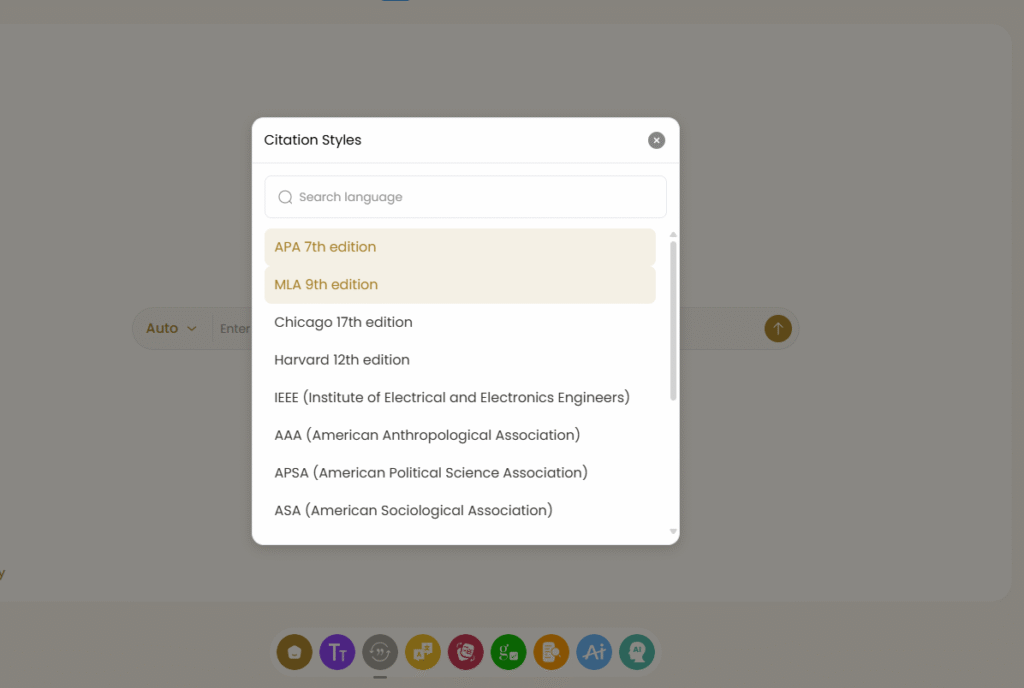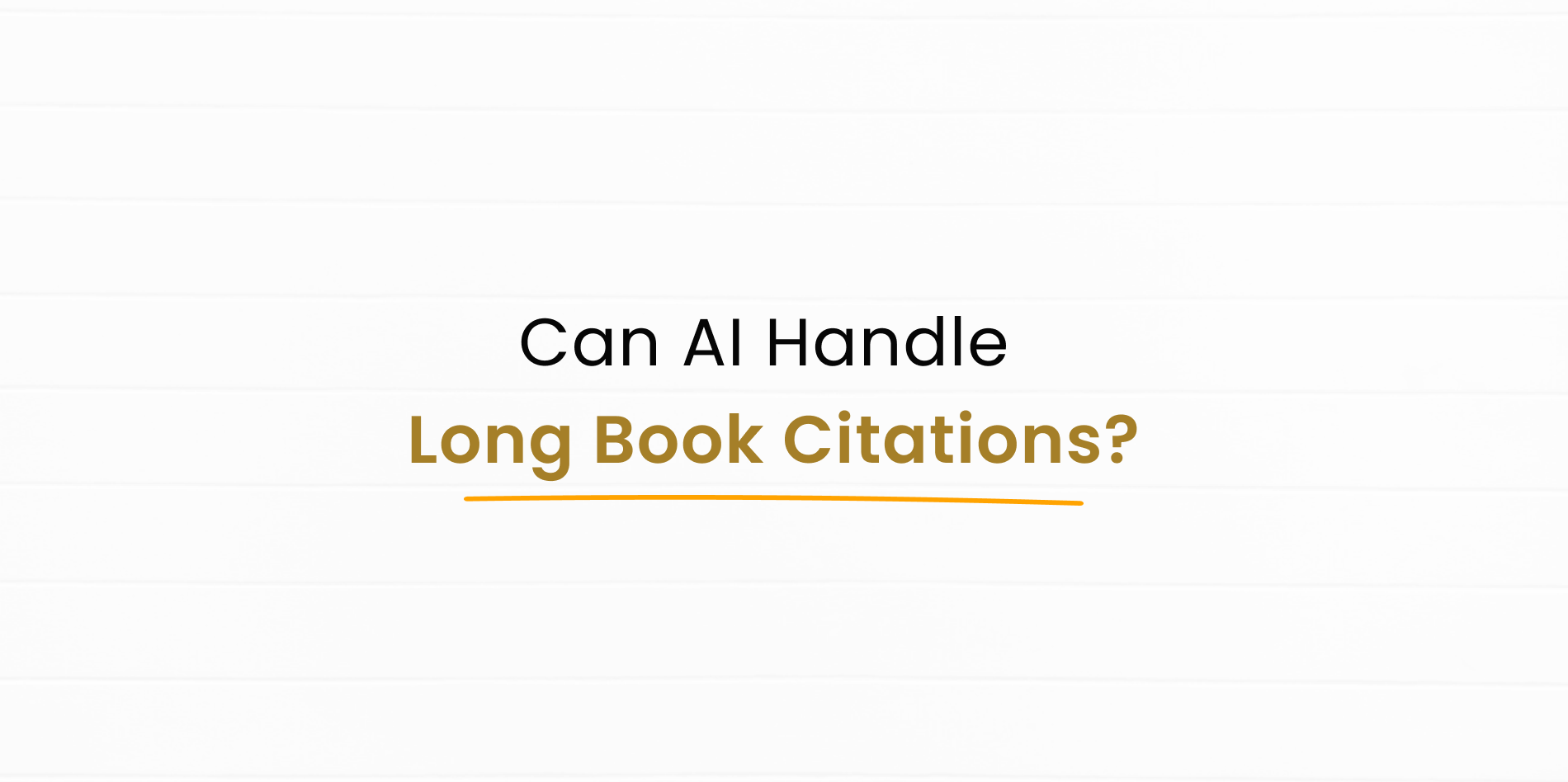Introduction
As artificial intelligence becomes an everyday tool for students, educators, and professionals, one question keeps coming up: can AI citations generate long book titles without errors? When preparing essays, research papers, or reports, accuracy in citations is not just optional, it is mandatory. Even the smallest mistake in a book title can undermine academic integrity.
This article examines how AI citation tools perform when tasked with generating long book titles. We will explore their strengths, common challenges, and how to improve citation accuracy. We will also highlight the role of KreativeSpace in helping users create, check, and refine citations.
What Are Long Book Titles and Why Do They Matter?
A long book title is any title that includes a main title and one or more subtitles, often separated by colons or dashes. For example, “Global Economic Transformations: A Comprehensive Guide to Trade, Technology, and Finance in the Modern Era” is a long title.
In citation formats like APA, MLA, or Chicago, the entire title, including subtitles, is required in the reference list. This means AI book-title citations must capture every word accurately. Missing or shortening a subtitle can mislead readers and reduce the credibility of your work.
How AI Citation Tools Work
Most AI citation tools work in one of two ways:
- Database Retrieval: The tool pulls citation details from bibliographic databases using identifiers like ISBN or DOI. If the database contains the full long title, the AI citation will be correct.
- User Input: The user enters book details manually, and the AI formats them into the correct citation style. If the user provides the full long title, the AI should reproduce it without error.
When these systems work properly, AI book-title citations can generate long book titles that are indistinguishable from manually prepared citations.
Can AI Citations Generate Long Book Titles?
Yes, in most cases, AI citation tools can generate long book titles accurately. Tools that support ISBN lookups often return the complete title, including subtitles. However, the quality of the result depends on the quality of the metadata. If the database entry is incomplete or outdated, the generated citation may be missing parts of the title.
This is why students and researchers are advised to cross-check AI-generated results with authoritative sources such as library catalogs or publishers’ websites. For example, Google Books is an excellent place to verify whether a long book title has been fully captured.
Challenges in AI Book-Title Citations
Despite their usefulness, AI citation tools have some limitations:
- Metadata Gaps: If an ISBN entry lacks the subtitle, the citation will only show the main title.
- Formatting Issues: Long titles often include punctuation, colons, or dashes. AI sometimes mishandles these depending on citation style rules.
- Over-Shortening: Some AI tools incorrectly shorten book titles to fit character limits, leading to incomplete citations.
- Hallucinations: In rare cases, AI adds words that do not exist in the official title, creating inaccuracies.
These challenges make it important to review every AI-generated citation before submitting academic work.
Best Practices for Reliable AI Book-Title Citations
To ensure accurate AI book-title citations, follow these steps:
- Always include full metadata: Add ISBN, edition, publisher, and year.
- Use ISBN or DOI lookups: These reduce the risk of missing subtitles.
- Cross-check with publishers: Verify long titles with trusted sources.
- Manually edit AI output: Tools like the KreativeSpace citation generator allow users to edit results for full accuracy.
- Check grammar and style: Tools such as the KreativeSpace grammar checker ensure formatting aligns with your chosen citation style.
The Role of KreativeSpace in Accurate Citations
KreativeSpace provides a suite of tools designed to improve writing, citations, and academic accuracy. Its citation generator allows users to create correct references in different styles. If a long book title is not displayed properly, users can easily edit the citation before exporting it.
Beyond citations, KreativeSpace offers tools that support the entire writing process:
- Summarizer to condense lengthy texts.
- Paraphraser to rephrase content while maintaining originality.
- Translator to handle multilingual sources in research.
- Plagiarism checker to ensure originality.
- AI detector and AI humanizer to refine AI-assisted content.
These tools make KreativeSpace not only a reliable platform for generating citations but also a comprehensive solution for academic writing and research.
Why Accuracy Matters in Long Book Titles
The importance of correct AI book-title citations cannot be overstated. Accuracy affects:
- Academic Integrity: Mistakes in long titles can appear careless or even dishonest.
- Reader Trust: Accurate citations help readers find the exact book.
- Research Quality: Complete citations demonstrate attention to detail and professionalism.
- Searchability: Correct titles ensure your references are discoverable in academic databases.
For these reasons, relying solely on AI without verification can be risky.
Outbound Reference for Verification
One effective way to verify whether AI-generated citations include full book titles is by using Google Books, which maintains accurate bibliographic records. Checking titles against this resource helps avoid citation errors.

The Decider
So, can AI citations generate long book titles correctly? The answer is yes, but with caution. AI book-title citations are capable of reproducing complete titles, provided the metadata is accurate and the AI tool formats them correctly. However, limitations such as metadata gaps, formatting mistakes, and occasional hallucinations mean human oversight is still required.
This is where KreativeSpace becomes invaluable. Its citation generator, along with supporting tools like the summarizer and grammar checker, ensures users can create accurate, polished, and credible work.
For students, researchers, and professionals, the best approach is to use AI citation tools as a starting point, then apply verification and editing with the help of platforms like KreativeSpace. This guarantees that long book titles are cited fully, accurately, and in the correct style, maintaining the integrity and quality of your writing.



